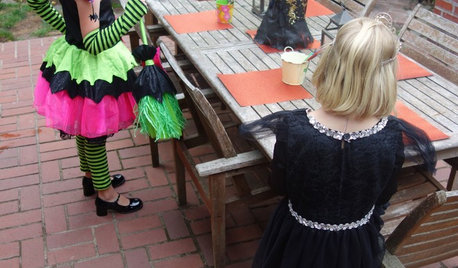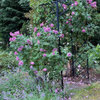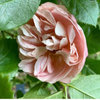Ready to throw in the towel...advice please!
elsa1028
21 years ago
Related Stories

LIFEGet the Family to Pitch In: A Mom’s Advice on Chores
Foster teamwork and a sense of ownership about housekeeping to lighten your load and even boost togetherness
Full Story
Advice to Kate Middleton: Keep Calm and Carry On
Royal-Wedding Jitters? Let This Ubiquitous British Print Soothe Your Nerves
Full Story
KITCHEN DESIGNSmart Investments in Kitchen Cabinetry — a Realtor's Advice
Get expert info on what cabinet features are worth the money, for both you and potential buyers of your home
Full Story
HEALTHY HOMEHow to Childproof Your Home: Expert Advice
Safety strategies, Part 1: Get the lowdown from the pros on which areas of the home need locks, lids, gates and more
Full Story
REMODELING GUIDESContractor Tips: Advice for Laundry Room Design
Thinking ahead when installing or moving a washer and dryer can prevent frustration and damage down the road
Full Story
DECORATING GUIDESDecorating Advice to Steal From Your Suit
Create a look of confidence that’s tailor made to fit your style by following these 7 key tips
Full Story
HOLIDAYSThrow a Calm, Happy Kids' Halloween Party — 5 Tips From a Mom
Keep your house and sanity intact with this advice from a veteran of Halloween extravaganzas with every kid on the block
Full Story
DECORATING GUIDESSail Through Special Occasions With a Ready, Gracious Home
Smile serenely in the face of impromptu parties, unexpected guests and last-minute gift giving with these ideas for preparing now
Full Story
DECORATING STYLESIs Your Home Ready for a 1970s Revival?
Seventies chic is a trend that’s been brewing for some time, but this year it could hit big — with a few modern tweaks
Full StoryMore Discussions












michaelg
LisaLou
Related Professionals
Ballwin Landscape Architects & Landscape Designers · Kapaa Landscape Architects & Landscape Designers · Oconomowoc Landscape Architects & Landscape Designers · Bethlehem Landscape Contractors · Frisco Landscape Contractors · Costa Mesa Landscape Contractors · Davidson Landscape Contractors · Fort Payne Landscape Contractors · Gloucester Landscape Contractors · Inglewood Landscape Contractors · Stony Brook Landscape Contractors · Thornton Landscape Contractors · Washington Landscape Contractors · Watertown Landscape Contractors · 07920 Landscape Contractorselsa1028Original Author
althea_gw
rdak
elsa1028Original Author
rdak
hettick
elsa1028Original Author
jillca
Field
lindaf
therid
WendellO
Phyllis_Leathers
patricianat
User
krikit
michaelg
DelawareMom